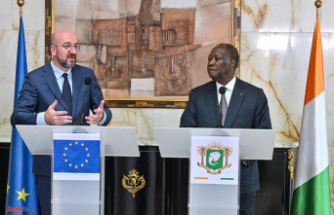Hardly anyone talks about the refugees in the current inflation debate. The refugee council raises the alarm and points out the sometimes already precarious living conditions.
Halle (dpa/sa) - According to the refugee council in Saxony-Anhalt, refugees are being ignored in the debate about cost increases. It is precisely they who are disproportionately affected by the consequences of inflation, said Robert Fietzke from the Refugee Council. They sometimes lived in precarious circumstances, and even before the exorbitant rise in inflation, the benefits were "too low for a life above the subsistence level". According to Fietzke, the price increases, especially for food, are "threatening the existence of the company".
Due to work bans, some refugees have little leeway to do anything about it, said Fietzke. In addition, there is a constant rush to the "Tafeln" which, at the latest since the Ukraine war, has led to their being overloaded. "The vicious circle of falling purchasing power due to inflation, unaffordable food both for refugees and for food banks and on the other hand increasing demand is a real risk of poverty and hunger."
Fietzke said that inflation and the federal government's austerity policy could massively fuel the social distribution struggles. "We fear that in the course of this development, not only will the actual violence against refugees increase, to the point of the danger of right-wing terrorist attacks, but that the wave of solidarity with the refugees from Ukraine will also tip into its opposite."
According to the Refugee Council, most of the refugees in Saxony-Anhalt live in more than 50 communal accommodations and in the state's initial reception facilities. Almost 2,700 asylum applications have been made so far this year. In addition, the country has taken in around 26,000 people from Ukraine since the outbreak of war, most of whom enjoy temporary protection without having to apply for asylum. However, according to the refugee council, some immigration authorities have in the meantime ordered a de facto freeze on admission because they argue with the "supposed overfulfillment of the admission quota".












